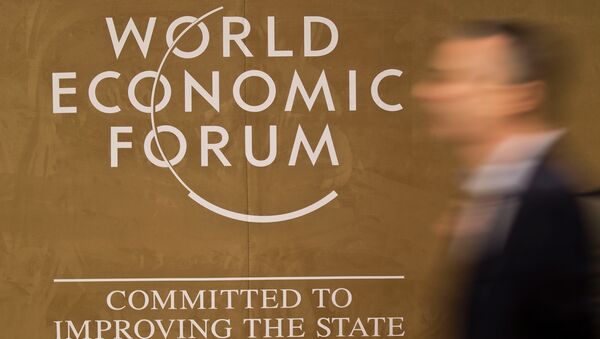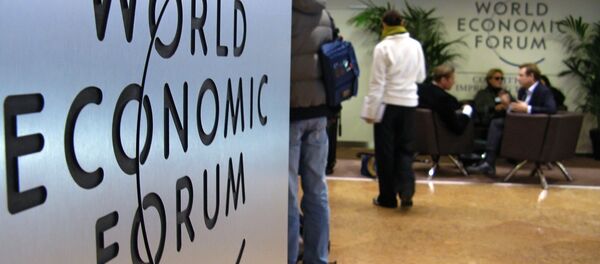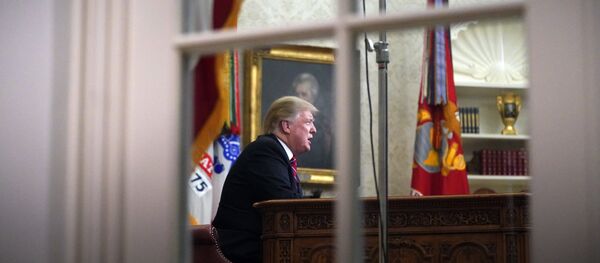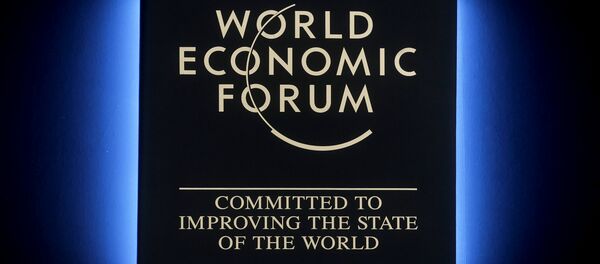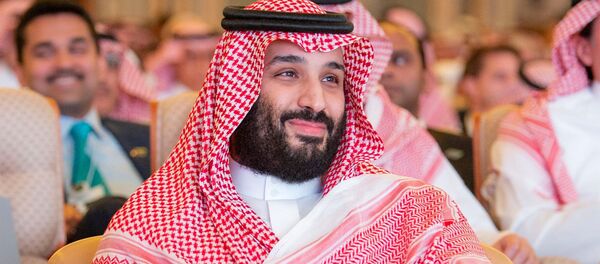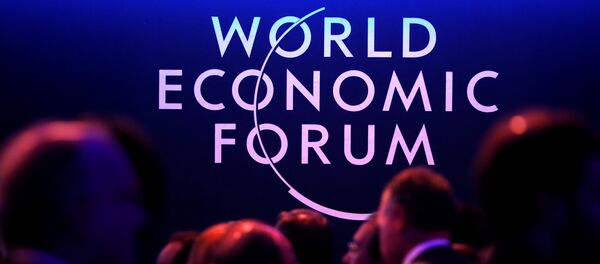The history of WEF began in January 1971, when a professor at the University of Geneva Klaus Schwab brought together leading business people and politicians in Switzerland for the first time to discuss the prospects for developing European business on the world market.
Such meetings were originally called the European Management Forum and drew participants only from western European countries.
In January 1974, political leaders were invited to the Swiss town of Davos for the first time. In 1976, the organisation introduced a permanent membership system.
In 1987, the European Management Forum was renamed the World Economic Forum to reflect its increased global significance.
About 1,000 large companies and organisations are currently members of the forum.
READ MORE: Davos Forum Warns Rife Political Risks Impair Global Economic Outlook
Professor Klaus Schwab is the founder and WEF's permanent executive chairman. The forum is headquartered in Geneva.
The Davos meetings include discussions about key international economic issues and are attended by leading political figures, representatives of the scientific and business communities from various countries and international organisations.
The forum’s programme includes "mini-summits" in which government officials participate, and seminars that are organised mainly for the business community, official delegations and certain political figures to interact.
WEF also holds regional summits in which government and business communities, as well as their trade and financial partners from other regions participate; national (country-specific) meetings, two-day seminars and symposia with the participation of business representatives and members of the government; informal meetings between government representatives and delegates from the leading companies of selected branches of industry (industrial summits).
READ MORE: Treasury Secretary Mnuchin to Head US Delegation at Davos Instead of Trump
The forum has a rather complex organisational and management structure.
The Managing Board, chaired by the Forum’s President Borge Brende acts as the executive body of the World Economic Forum, ensuring the implementation of the forum’s activities and acting as its representative for third-party organisations. The board is held collectively responsible for the forum and is accountable to the Board of Trustees.
Operational guidance is provided by the Executive Committee, which includes representatives from more than 60 countries.
There are three centres in WEF's structure: for global, regional, and industry agendas.
WEF structure also includes several communities, such as Technology Pioneers, the Schwab Foundation for Social Entrepreneurship, Young Global Leaders, Young Scientists, Cultural Leaders as well as others.
Each year, WEF publishes reports and rankings, in particular, the Global Competitiveness Report, the Global Gender Gap Report, Regional Risks for Doing Business, and others.
READ MORE: Russian Entrepreneurs to Attend Davos Forum Despite Restrictions — Economist
In 2018, the 48th World Economic Forum was held in Davos from 23-26 January and was attended by 70 heads of state and governments. The theme of the forum was "Creating a Shared Future in a Fractured World".
The official Russian delegation in 2018 was headed by then-Deputy Prime Minister Arkady Dvorkovich.

